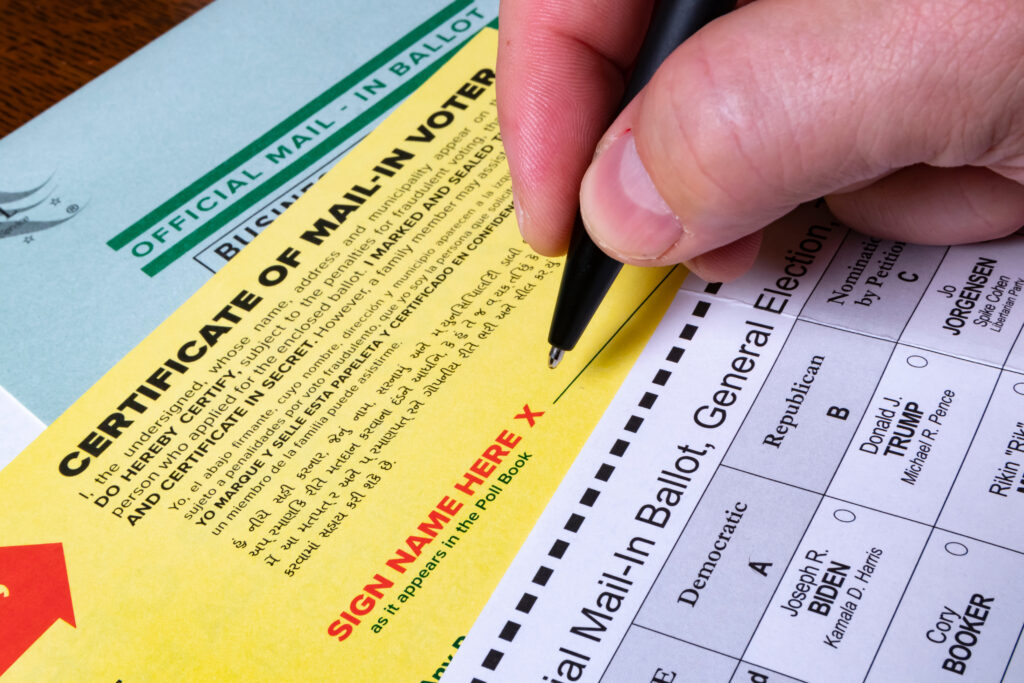This Week at Democracy Docket: GOP Wants One-Day Elections, and Setbacks for Trump’s Gerrymander Scheme

We’ve been warning for months that President Donald Trump and the GOP are coming hard for mail voting — and this week saw a major development in the campaign.
Democracy Docket’s Jim Saksa was first to report that the Supreme Court will hear a Republican challenge to Mississippi’s law allowing the counting of mail ballots that come in up to five days after Election Day, as long as they’re postmarked by that day. Sixteen states and Washington D.C. have similar laws, so a ruling striking down these grace periods could radically upend mail voting.
Get updates straight to your inbox — for free
Join 350,000 readers who rely on our daily and weekly newsletters for the latest in voting, elections and democracy.
And Jim followed up by revealing something every other outlet missed: Some Republicans are laying the groundwork to go even further.
Ballots that arrive after Election Day shouldn’t count, they argue, because federal law says Election Day has to be a single day (it doesn’t). “Election Day means Election DAY,” the head of the civil rights division at the Department of Justice (DOJ) posted on X. By that logic, of course, early in-person voting, which has been widely used for nearly two decades, would also be on the chopping block. Which may be exactly the point.
In fact, Trump himself has called for getting rid of both mail voting and early voting and returning to the days of voting only in person on a single day. That’s a shift that, he’s well aware, would severely restrict access to the ballot.
In a related development, Trump has stocked his administration — from the White House to the DOJ to the Department of Homeland Security, with election deniers, including people who played key roles in his effort to steal the 2020 election. And, as Matt Cohen detailed, they’re already working to undermine fair elections next year and in 2028.
Meanwhile, Yunior Rivas covered some setbacks for Trump’s bid to rig the midterms by pressuring GOP-controlled states to gerrymander their congressional maps. Utah’s gerrymander was struck down by a court, while Indiana, following Kansas, appears to have opted out of the scheme, for now at least.
But don’t relax just yet. Maya Bodinson and Jen Rice analyzed all the congressional redistricting cases currently before federal courts, and found that nearly two thirds will be heard by Republican-appointed judges — and nearly half by Trump-appointed ones. That could give the GOP a crucial edge in these high-stakes legal battles to determine the 2026 map.
Finally, Jacob Knutson brought us some encouraging news about Trump’s payback prosecutions: The indictments against former FBI director James Comey and NY Attorney General Letitia James (D) may be on shaky ground because the appointment of the prosecutor in those cases, the former Trump personal lawyer Lindsey Halligan, is being challenged as invalid. And three of Trump’s other interim US attorneys have already been found by judges to be serving unlawfully.
We’re going to keep trackingTrump’s war on voting, his bid to rig the midterms, his corrupt prosecutions, and all the other prongs of his authoritarian power grab. Thanks for following on.